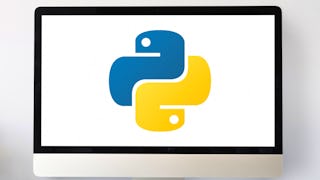![[Featured Image] An HR representative provides a new hire with the company’s compensation definition and details about their compensation packages.](https://images.ctfassets.net/wp1lcwdav1p1/3zdy7XUbT6kYjhbync1mjn/50c86915efdd155d5d9a17002fb573c3/GettyImages-1175129846.jpg?w=330&h=216&q=60&fit=fill&f=faces&fm=jpg&fl=progressive)
Compensation Definition: A Guide to Pay
Learn more about employee pay and other forms of compensation. Explore the importance of compensation, the factors that affect it, and what it takes to have a career as a compensation and benefits manager.
August 21, 2024
Article

![[Featured image] Two men stand in a conference room looking at a chart showing rising growth, questioning which degree makes the most money.](https://images.ctfassets.net/wp1lcwdav1p1/56DxzlBVvvoy7vLVLzA5sU/c17a2457d18d3efe6d3244fb6d013fda/GettyImages-598255892.jpg?w=330&h=216&q=60&fit=fill&f=faces&fm=jpg&fl=progressive)
![[Featured Image] An intelligence analyst, one of many FBI cybersecurity jobs, sits at a laptop and looks at data.](https://images.ctfassets.net/wp1lcwdav1p1/1WlswBiUImydLvsJX0T9mV/84d9434137fc1b69c6252d964ad0bb45/GettyImages-1152666247.jpg?w=330&h=216&q=60&fit=fill&f=faces&fm=jpg&fl=progressive)



![[Featured image] A confident professional wearing a green sweater is working in their home office and calculating how many work weeks are in a year.](https://images.ctfassets.net/wp1lcwdav1p1/5tUbM22F0h0kQLPjFH7wlh/b2240cdb9b0ea77534a255b8da48c2f5/GettyImages-1393600870.jpg?w=330&h=216&q=60&fit=fill&f=faces&fm=jpg&fl=progressive)
![[Featured Image] A group of employees walks through a park to grab lunch on their breaks from their cybersecurity jobs in Houston.](https://images.ctfassets.net/wp1lcwdav1p1/76VbWBg3HgiGSE9ynwZhxg/f37cf1b85b1e7d0f9b05afc0e101af3a/GettyImages-1202932956.jpg?w=330&h=216&q=60&fit=fill&f=faces&fm=jpg&fl=progressive)
![[Featured image] A group of medical professionals interviews a candidate for a healthcare cybersecurity role opening.](https://images.ctfassets.net/wp1lcwdav1p1/530QehldDxxOcEStkabEsu/a0874d7c26a01ad9704ce0060c2efe51/GettyImages-174986977.jpg?w=330&h=216&q=60&fit=fill&f=faces&fm=jpg&fl=progressive)
![[Featured Image] An epidemiologist, one of many Power BI jobs that rely on data visualization, looks into a microscope in a lab.](https://images.ctfassets.net/wp1lcwdav1p1/5lAYJw4fQzFirEpuBIlssV/cb17d7786241d83872ee7ded3624d21d/GettyImages-1386962536.jpg?w=330&h=216&q=60&fit=fill&f=faces&fm=jpg&fl=progressive)
![[Featured Image] A technical writer sits at their desk and uses their laptop for work.](https://images.ctfassets.net/wp1lcwdav1p1/7fkaVGUb9sDvBy9B0qexyA/bfe40487bc6c9e0011172d1a18af9e0c/GettyImages-1316573605.jpg?w=330&h=216&q=60&fit=fill&f=faces&fm=jpg&fl=progressive)
![[Featured Image] An air traffic controller, which is one of many jobs that pay $50 an hour without a degree, uses binoculars to look out a window over a runway.](https://images.ctfassets.net/wp1lcwdav1p1/5lEEGlBTQp5lPMBOgU57SX/df8d38e23b886e7c3615bfc01b0ae970/GettyImages-157616362.jpg?w=330&h=216&q=60&fit=fill&f=faces&fm=jpg&fl=progressive)
![[Featured Image] A man wearing a suit shakes hands with an interviewer during his job interview for one of the DHS jobs to which he applied.](https://images.ctfassets.net/wp1lcwdav1p1/5PUZfoPxVR7xcVZd1WLLcv/65acec543dc9de6839a2b221a1efd0d3/GettyImages-685004269.jpg?w=330&h=216&q=60&fit=fill&f=faces&fm=jpg&fl=progressive)
![[Featured Image] A cybersecurity project manager, one of the many non-technical cybersecurity jobs, presents some information to their team.](https://images.ctfassets.net/wp1lcwdav1p1/5z0Rg2HxRJtarvHOy4geml/1ebcce783841565d083fb1a8b89962e4/GettyImages-495843651.jpg?w=330&h=216&q=60&fit=fill&f=faces&fm=jpg&fl=progressive)
![[Featured Image] A man wearing a headset and typing on a computer works in emergency communications, one of the many important CISA jobs.](https://images.ctfassets.net/wp1lcwdav1p1/2ZrU5nZvimTi0VDLQ6Ouv7/6704236f41481fcbc4f3a2b9b33b13e0/GettyImages-1500517583.jpg?w=330&h=216&q=60&fit=fill&f=faces&fm=jpg&fl=progressive)



